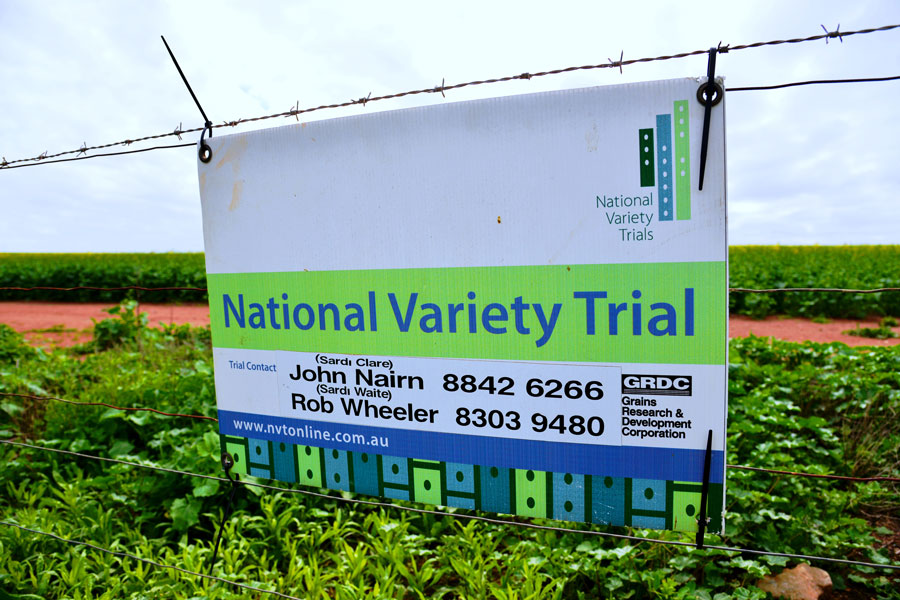The work of service providers is audited each year to ensure the NVT program sustains high-quality outputs.
Rob Wheeler has spent 45 years running crop variety trials and completing audits to ensure the highest standard of work.
Mr Wheeler was a principal scientist with the South Australian Research and Development Institute (SARDI) where he coordinated crop variety trials as an NVT service provider before joining GRDC as the southern NVT manager.
From the early 1980s, Mr Wheeler sourced varieties and advanced breeding lines from crop breeders to run trials across SA.
“Our system was widely praised by the industry and used a lot of NVT-type practices,” he says.
“In the early 2000s, a GRDC Panel member from Western Australia came to SA to see how we ran trials and recorded information in the database we were developing.
“He was impressed and encouraged GRDC to start the NVT program based on what we did.”
As a service provider at SARDI, Mr Wheeler helped Alan Bedggood from Agriculture Victoria (AgVic) set up the NVT and the database to manage trials and store results.
After Mr Bedggood left AgVic to lead the NVT, Mr Wheeler and his SARDI team oversaw the SA NVT and coordinated the Victorian NVT in the Mallee until the Birchip Cropping Group started managing the Mallee trials.
He says the NVT have always been an excellent training ground for regionally based early career technical and scientific staff.
After retiring from SARDI, Mr Wheeler joined GRDC as the southern NVT manager.

He ensured that all SA, Victorian and Tasmanian NVT were established according to agreed-on protocols to produce sound and unbiased results.
Audits were a crucial step in the transition from individual state-based trialling programs to a single, national network run by multiple providers.
“It’s essential to ensure everything is standardised so there is no bias towards one variety or breeding line. It’s one of the most important parts of the NVT.”
“NVT managers travel to trials at least once a year to complete an audit,” he says.
Audits have also evolved over NVT’s 20-year history, they now include putting a drone above the trial site to check the plot uniformity.
Among other aspects, a ground-based check identifies issues with trials that could effect data quality to ensure appropriate management occurs. Examples of trial issues include:
- Even establishment
- Pests
- Disease
- Frost impact
- Physical grain loss - shattering, lodging, head loss etc.
Mr Wheeler says the NVT’s emphasis was initially on wheat and barley, but today 10 grain crops are involved, with sorghum the most recent addition.
“Changing to a higher-yielding, better-quality or more disease-resistant variety doesn’t cost much to a grower, but it can greatly improve profits and make farming systems more sustainable,” he says.
“In the past five years, the NVT has stepped up the speed and uniformity with which it disseminates results via the online database, trial notification service, harvest reports and sowing guides.”

























































